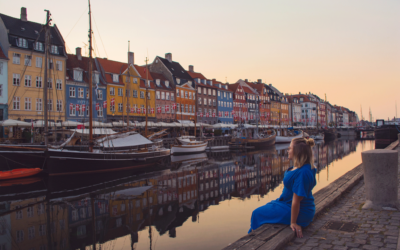Thousands of Spaniards take to the streets: “Tourism robs us of our bread, our roof and our future”
On Sunday, thousands of people took to the streets in several Spanish cities to protest against mass tourism. The demonstrations follow years of mounting discontent among residents. Under the slogan “Less tourism, more life”, locals in cities including Palma de Mallorca, Barcelona, Granada and San Sebastián want to send a clear message: the balance has been lost.
According to police, around 8,000 people gathered in Palma. In San Sebastián, some 500 people protested against what they described as “out of control” tourism, which they say is fuelling a housing crisis. In Barcelona, more than 600 demonstrators took part. The protest also targeted the planned expansion of El Prat airport. Remarkably, some protesters sprayed tourists with water pistols and temporarily blocked hotel entrances.
What are the protests in Spain against?
Although tourism accounts for 15.6% of Spain’s economy and 14% of its jobs, many residents feel increasingly excluded from their own cities. The protests focus on several issues:
- Exploitation of the housing market
Homes are being bought up en masse and rented out to tourists. This drives up prices and makes housing unaffordable for locals. - Overburdened infrastructure
The influx of millions of tourists leads to congested roads, mountains of waste and pressure on water supplies — especially in tourist hotspots. - Loss of local culture and liveability
Historic city centres are increasingly turning into tourist attractions. Local shops and traditions disappear, and residents feel like strangers in their own neighbourhoods. - Poor working conditions
Many Spaniards work in tourism for low wages and in precarious conditions, while profits largely flow to major chains and foreign investors. - Limited say for residents
Decisions about airport expansions or new hotels are often made without local input.
Government under pressure
The Spanish government says it is taking the issue seriously. Measures under consideration include setting limits on the number of tourists per year and stricter rules for holiday rentals. In Barcelona, it has even been announced that all tourist apartments will be shut down by 2028.
Still, finding solutions remains difficult. Figures from the WTTC (World Travel & Tourism Council) show how dependent Spain is on tourism. In 2024 the country received a record 94 million tourists, and this year it is expected to exceed 100 million. Strong restrictions on the tourism sector therefore appear economically risky.
Also protests in Portugal and Italy
Discontent is not limited to Spain. Last Sunday, similar protests took place in Lisbon, Venice, Palermo, Milan and Naples. In many cases, demonstrators used water pistols in the streets or blocked hotel entrances. In cities such as Barcelona and Venice, the message on walls and banners is plain to see: “Tourists go home.”
The SET alliance (Sud d’Europa contra la Turistització – Southern Europe against Touristification) coordinated these protests across southern Europe. Activists describe it as a “common struggle” against mass tourism, which they say is tearing communities apart.
A possible future: blockchain as a solution?
As the protests continue, more cities and start-ups in Spain are exploring innovative solutions. One idea is the use of blockchain technology in tourism, with the aim of making the sector fairer and more sustainable:
- Fairer distribution of income
Blockchain could make tourism revenues more transparently shared with local residents and communities. - Control over holiday rentals
By registering rentals on the blockchain, illegal letting becomes harder, and cities can better manage tourist numbers.
Cities such as Valencia and Santa Cruz are already experimenting with so-called Tourism DAOs: decentralised organisations in which residents directly participate in tourism policy.
The call for balance
Protesters stress that their anger is not directed at every tourist. But in places such as the Balearic Islands — where tourism makes up more than 40% of the economy — the situation has become unbearable for many. A 21-year-old student from Barcelona put it this way: “Tourists see our city as a theme park, while we no longer have anywhere to live or lead a normal life.”
The call for more sustainable and fairer tourism is growing louder — in Spain, but also far beyond. Whether policymakers and businesses will truly take that message on board remains to be seen.





0 Comments